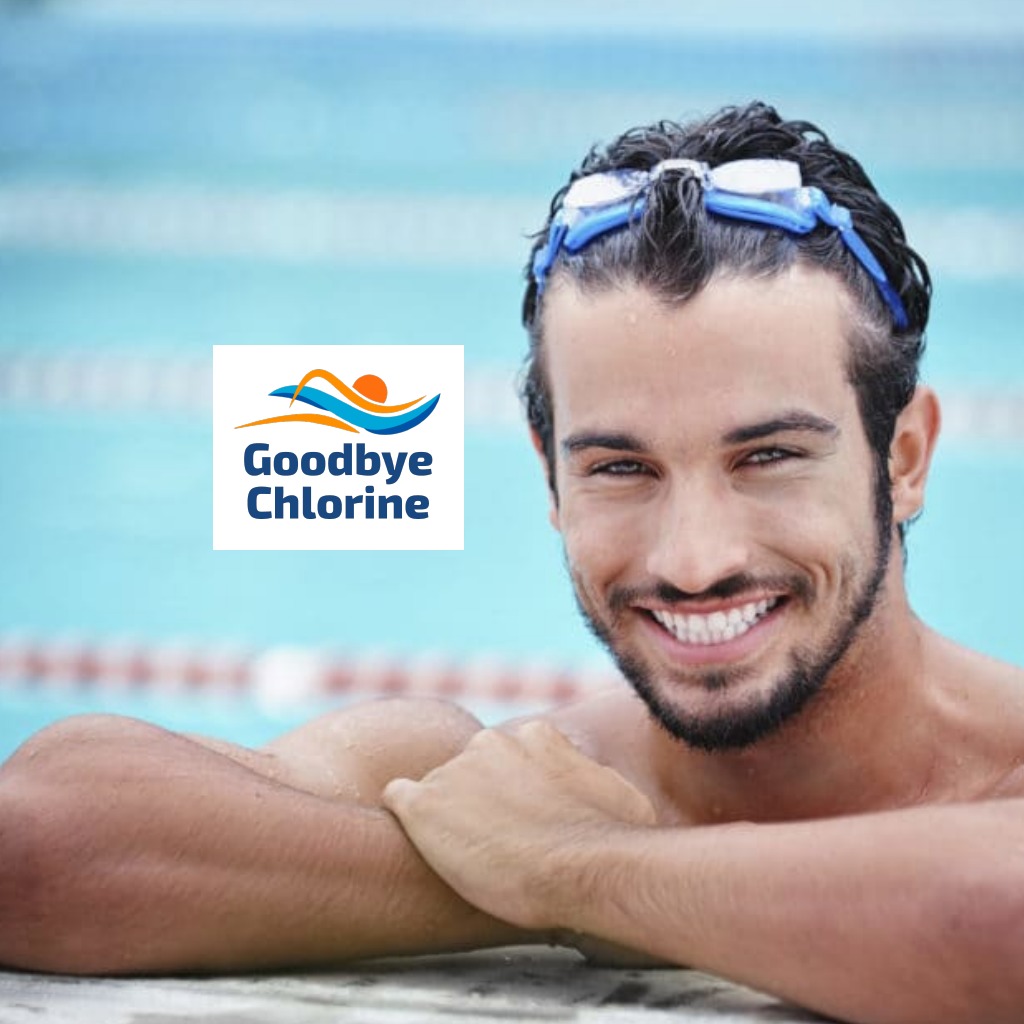Table Of Content

Don’t be too surprised if a shampoo doesn’t moisturize your hair, it’s not designed that way. That said, using a swim shampoo and conditioner won’t hurt, and I highly recommend it if you are a frequent swimmer. These shampoos and conditioners are specially formulated to effectively remove chlorine and other pool chemicals, salts, and metals. These products typically contain ingredients that will chelate copper and other metals so that they won't discolor your hair. The shampoo may leave a waxy coating on your hair, which is intended to prevent it from soaking up pool water.
Before you swim: Protecting your hair from chlorine.

Another Virtue essential, Vellozzi recommends using this sulfate-free toning shampoo up to twice a week after swimming. It uses a blend of clarifying ingredients, like lemon fruit extract and salicylic acid, to neutralize brassiness and brighten natural (or unnatural) color. This Italian-made shampoo is gentle enough to cleanse relaxed or bleached hair without stripping it of much-needed nutrients. "If you’re swimming often or daily, try Davines Nounou Shampoo, which is naturally acidic, since it includes tomato extract as a main ingredient," Hans explains.
Ion Swimmer’s Shampoo
There are even specially formulated pre-swim conditioners that offer added UV filtration to protect your hair from sun exposure in outdoor pools. Think of your dry hair like a sponge – it will eagerly soak up any liquid it comes into contact with. If you pre-soak your hair, it won’t absorb nearly as much of the damaging pool water.
Make Sure Your SPF Won't Wash Right Off
Oh, and remember to always thoroughly rinse off your hair and body before and after a swim. Doing so beforehand helps to keep any sweat, grime, and haircare or skincare product residue out of the water; rinsing afterwards helps flush away the chlorine from all parts of your body. If you can manage a full shower immediately after the swim, even better. Keep in mind that if you’re wearing a latex or silicone swim cap, the oil may make the cap slide off your head. In that case, you might have to skip the coconut or olive oil and up your hair care game in other ways.
Even though each product is different, it’s important to use both for the best hair health and protection. Eventually, the product buildup will be cleared out, and you’ll have clean, healthy, soft, shiny, and protected hair. While this doesn’t come with the convenience of being able to easily carry it in your swim bag, it does save you quite a bit of money.
Ask A Gear Guru: What's The Best Soap & Shampoo For Swimmers? - Triathlete
Ask A Gear Guru: What's The Best Soap & Shampoo For Swimmers?.
Posted: Fri, 13 Mar 2020 07:00:00 GMT [source]
While slightly more expensive than other products, these don’t contain any sulfates, parabens, gluten, or salt commonly found in other shampoos and conditioners. Chlorine shampoos also work to restore moisture and balance to the hair, and they can treat and prevent the dreaded green tint that can come with too much chlorine exposure. You don’t necessarily have to shampoo and condition your hair after swimming, but you should at least give it a good rinse with fresh water. Shampooing your hair every day can strip it of its natural oils and cause the hair and scalp to dry out. On the days that you do choose to shampoo your hair, just make sure you use a gentle shampoo that will get all that chlorine and grime out. Getting chlorine on a few strands of hair can still damage your hair, especially the ends of it.
Team GB's only black swimmer: 'I understand why girls would quit over their hair' - BBC.com
Team GB's only black swimmer: 'I understand why girls would quit over their hair'.
Posted: Mon, 05 Aug 2019 07:00:00 GMT [source]
How Chlorine Impacts Hair Health
Johnson says most chlorine shampoos contain a version of sodium thiosulfate and/or vitamin C (ascorbic acid) to break down chlorine molecules. A more natural route for the same result is apple cider vinegar, he adds. Chlorine tends to leave hair feeling ropey, gummy, and tangled, and this shampoo reverses those problems.
Chlorine-damaged hair usually appears very dry, frizzy, and constantly tangled. If you think your hair is damaged from the chlorine in the pool, talk to your hairstylist, who can likely assess the severity of the damage and help you protect your hair further while swimming. If you only swim occasionally, there's not much you need to do to keep your hair healthy, except wearing a swim cap to avoid getting your hair wet with chlorinated water. This is why you want to rinse your hair with fresh, clean water from the shower before you submerge it in the pool or ocean.
She was the one who dove into the pool, fully clothed, swimming to the bottom, to save Alvarez. The young coach likes to think of herself as part of a new generation, guiding a squad that includes diverse ethnicities and body types. The ideal of homogenous beauty, everyone trying to look perfect or, as one swimmer put it, “matchy-matchy,” has its dark side.
Swimmer shampoos work by using specialized ingredients that break down and neutralize chlorine and other pool chemicals, effectively cleansing your hair and preventing damage. Most swimmer shampoos are formulated to be gentle enough for daily use, but it’s important to read the product instructions or consult with a hair care professional for personalized advice. By choosing the right chlorine removal shampoo, you can keep your hair happy, healthy, and resilient throughout your swim season.
Unfortunately, even the water you shower in contains both minerals and oxidizers, so even diligent cleansing of the hair after exposure to pool water will not resolve the problem. Swimmer’s hair occurs when regular exposure to chlorinated water strips your hair of its natural oils, causing it to become brittle, rough, and prone to breakage. For blondes or lighter-colored hair, green streaks often appear due to the chlorine damaging hair cuticles and allowing oxidized metals like copper to settle in.
There are various ingredients, natural and otherwise, that can get the job done, and most formulas are color-safe. But, “it’s always a good idea to consult with a hair colorist if you have any specific sensitivities,” Haliti adds. If you’re looking to protect your hair from the elements this summer, look no further than these expert-approved picks. Fed up with the effects and smell of chlorine in your hair after swimming? Here is how to remove chlorine from your hair once and for all.
This is a hyper-focused shampoo you should only use when you need to strip your hair or skin of chlorine or salt. Natural ingredients are emphasized over sulfates and other synthetics. UltraSwim is one of the most trusted post-pool shampoos on the market. Trusted by professional and amateur swimmers and seemingly everyone in-between, there’s no going wrong here. Dmitry Irshinskiy, a professional colorist at Fekkai SoHo in New York City, uses this color- and keratin-safe clarifying shampoo to restore his clients's post-swim hair. Along with apple cider vinegar, it's powered by salicylic acid to boost the scalp's exfoliation and cleansing power.
Hair loss is a result of the oxidation of DHT (dihydrotestosterone). Minerals from the pool can bond onto weak hair at the mouth of the follicle that can break the hair and ultimately block new growth. Breakage is a result of severe oxidation most often compounded by minerals bonded onto the hair. Take the guesswork out of choosing the right tech suit, caring for your swimwear, or just see what the experts are saying about gear for the pool, beach, and gym. To keep your hair as dry as possible, go with this turban, which has a silicone lining inside the Lycra wrap.
To use this shampoo effectively you apply it before you even enter the water. That’s the biggest difference between Aqua Guard and other brands. You’ll see the difference as soon as you rinse it out of your hair. The negative comments relate to how long that person used the product. You might not see results instantly so use the shampoo on a regular basis.
Many of our swimmers use TRISWIM Swimmers Hair Conditioner to condition their hair after swimming. A leave-in hair conditioner works the same way as a protective oil. Swimmers can use oils such as Moroccan oil, jojoba oil, olive oil or coconut oil to protect their hair.

No comments:
Post a Comment